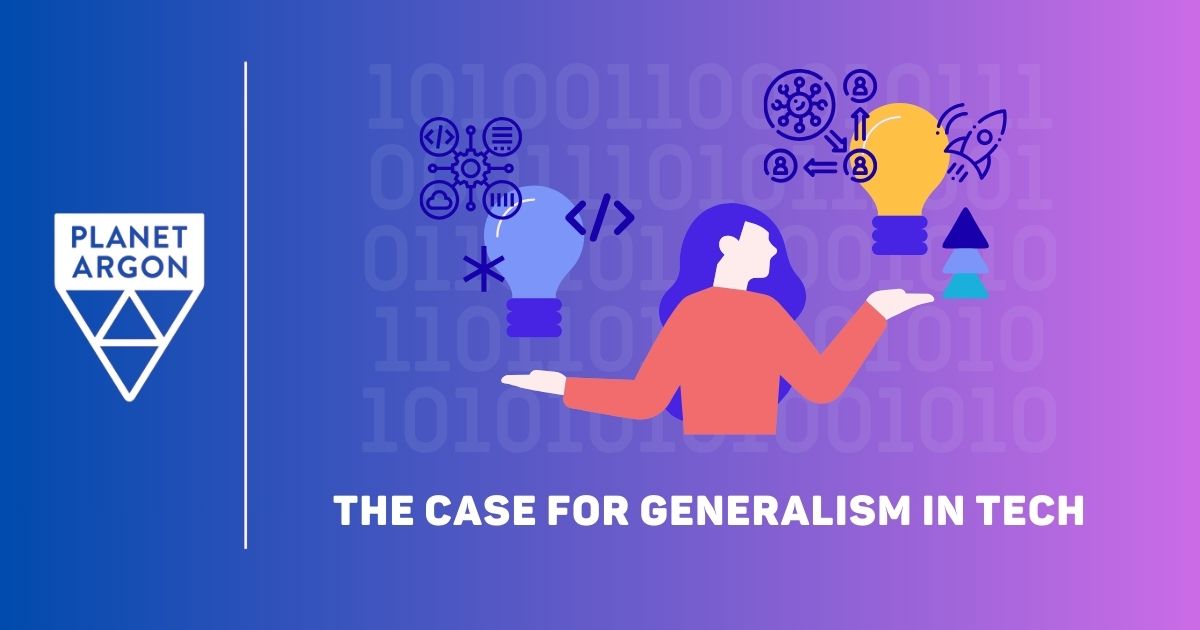
In the ever-evolving world of technology, a perennial debate simmers: is it better to be a master of one or a jack of all trades? While both paths have their merits, I'm here to make a strong case for embracing generalism in the tech industry.
Understanding the Expertise vs. Generalism Debate
The distinction between expertise and generalism has long shaped career trajectories across industries. Specialists or experts delve deep into a narrow field, acquiring extensive knowledge and skills in a specific domain. Generalists, on the other hand, acquire a broader set of skills across multiple disciplines, though often with less depth in any single area.
Pros and Cons of Both Approaches
Specialization allows for deep technical mastery, making an individual highly proficient in a particular area. This can lead to recognition as an authority, potentially leading to better job security in niche areas. However, over-specialization can also be risky. Technologies evolve, and being too focused on one can leave a professional obsolete if that technology falls out of favor.
Generalism, conversely, offers flexibility and adaptability—key traits in a fast-paced industry like tech. Generalists can pivot between different roles and technologies as the landscape changes. The downside? They might be perceived as less skilled in any one technology, potentially facing challenges in roles that require deep technical expertise.
Why I Advocate for Generalism
Reason 1: Diversity of Technologies
Modern applications integrate a vast array of technologies, making it impractical for one person to be an expert in all of them. From front-end JavaScript frameworks to back-end databases and DevOps tools, the tech stack is too varied and vast.
Reason 2: The Nature of Agency Work
In agency settings, where client needs dictate the technology stack, flexibility is paramount. One project might use React and Node.js, while another requires Angular and Python. A generalist skill set allows you to navigate these changing waters with ease.
Reason 3: Industry Trends
The tech industry is notorious for its rapid evolution. Betting all your skills on one technology could be risky. Today's in-demand skill could become tomorrow's historical footnote. Generalists can adapt to these shifts, ensuring sustained employability.
Reason 4: Cognitive Flexibility
Learning new technologies not only adds to your toolkit but also keeps your problem-solving skills sharp. The ability to switch between different programming languages and paradigms enhances cognitive flexibility, making you a more effective problem solver.
Reason 5: The Reality of Modern Job Requirements
Today's developer jobs often list skills that span across coding, DevOps, and more. Understanding the basics of continuous integration and deployment (CI/CD), for instance, is invaluable. Being conversant in these areas can make the difference in landing a higher-level position.
Fun Fact! Versatility is one of our core values!
Challenges of Generalism
While the benefits are significant, the drawbacks of spreading oneself too thin are real. Without sufficient depth in at least one area, a generalist might struggle to perform effectively in more specialized roles. Moreover, top performers in any field often achieve their status through deep expertise.
Striking a Balance: Tips for Blending Expertise with Generalism
- Primary Language Focus with Ecosystem Awareness: Choose one programming language to specialize in, such as JavaScript. Master it, but also familiarize yourself with its ecosystem—frameworks like React or tools like TypeScript.
- Slice Expertise: Gain the ability to handle all stages of the software development lifecycle (SDLC) for a specific part of an application. This holistic understanding of a project's lifecycle adds tremendous value.
- SDLC Stage Specialization: Consider specializing in a particular stage of the SDLC, such as testing and QA. This can position you as an expert in that area while maintaining a generalist's breadth in other stages.
- Deliberate Practice: Apply the principles of deliberate practice to both your specialized area and your broader learning. This means engaging in focused, goal-oriented learning activities, even when broadening your generalist skills.
In conclusion, while deep expertise is undeniably valuable, the dynamic nature of the tech industry and the diverse demands of modern job roles make a compelling case for generalism. By adopting a learning strategy that balances depth with breadth, tech professionals can not only enhance their adaptability and problem-solving capabilities but also secure a more resilient and versatile career path in the ever-changing technological landscape.